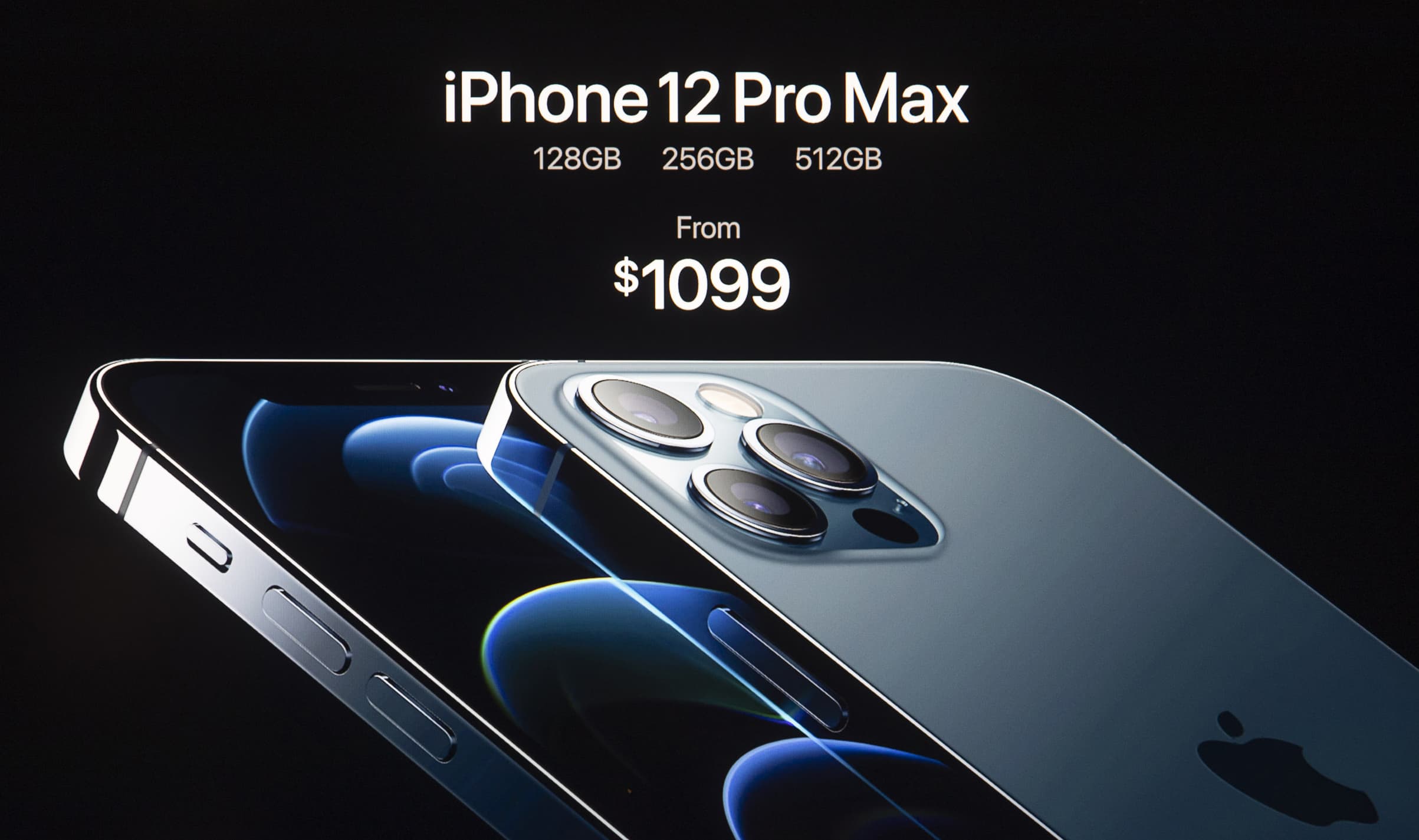
Pricing for the Apple iPhone 12 Pro Max is unveiled.
Daniel Acker | Bloomberg | Getty Images
Apple announced its latest class of iPhones on Tuesday, but some analysts said the company failed to address a key point: Why the average consumer should shell out $1,000 or more for its top-of-the-line model.
“In past phone cycles, we have felt that AAPL makes a strong case why tech-savvy consumers should gravitate towards the highest end solution (iPhone X in 2017, iPhone XS in 2018, iPhone 11 Pro in 2019), but we do not believe such a case was made as strongly in 2020,” Deutsche Bank analysts said in a research note Wednesday. “We worry that the event did not make a strong enough case that the average consumer should tilt their purchasing towards an iPhone 12 Pro/Pro Max vs. a 12/12 mini.”
The company changed its lineup so that the iPhone 12, the direct successor to the iPhone 11, was bumped to $799. That’s followed by the iPhone 12 Pro and iPhone 12 Pro Max for $999 and $1,099, respectively.
But the only key difference between the models seems to be camera capabilities and a larger base of storage. The Deutsche Bank analysts pointed out that the company failed to show any difference between the models’ processors, battery life or screen technology.
The iPhone 12 models and the iPhone 12 Pro models can be distinguished by the extra camera lens in the latter. The Pro models include a telephoto lens in addition to wide and ultrawide lenses and bigger camera sensors that let in more light for better photos. It also features a new lidar sensor on the back, which Apple said will improve augmented reality features and low-light portrait photos.
But that mostly matters for serious photographers, not the average consumer. Last year, the iPhone 11 was the best-selling iPhone in the holiday quarter. Apple CEO Tim Cook previously said that Apple “hit the right price” with the iPhone 11 when discussing the device.
After Apple announced the phones, UBS said in a research note that it forecasts only 25% of total iPhones sold in fiscal year 2021 will be its Pro variants, while 38% will the lower priced model, because of the $999 starting Pro price point.
“Given all the features offered for iPhone 12, the value proposition for iPhone 12 Pro essentially comes down to the quality of the camera. And the camera indeed appears stunning — but the camera is the only differentiator between iPhone 12 and iPhone 12 Pro,” Raymond James analysts wrote in a brief Wednesday.




















